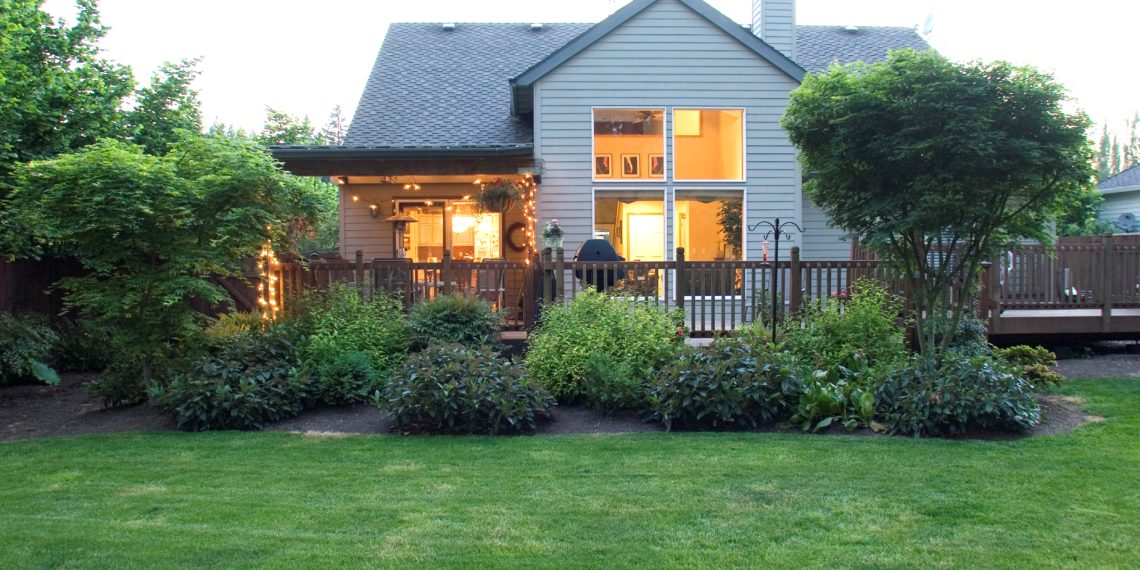If you’re retired, having a smaller, single-story home can also help you to prepare for the future, when your needs might change.
But, switching your family home to a cozier abode isn’t without its challenges. For one thing, you’ll need to work out which sort of property is right for you and create a financial plan. You’ll also need to work out how to streamline your belongings and adapt to living in a smaller space, which is no easy task — especially if you’re used to having a little more space than you need. To help you out, we’ve put together a helpful guide that will show you how to downsize in four simple steps.
1. Work out if downsizing is right for you
Swapping your family home for something smaller is an appealing choice for lots of people, and especially those approaching retirement. Many people decide to downsize because:
• Upkeep is easier: Smaller houses are easier to clean, maintain, and manage. Many people also opt for new-builds, as the upkeep is simpler and they’re less likely to need extensive repairs than an older home.
• You can release equity: If you’ve paid off your mortgage, downsizing to a cheaper home allows you to unlock the equity you’ve built up over the years. This is especially useful if you live on a pension and are currently wealthy in terms of assets, but don’t have much cash saved. Even if you haven’t paid off your mortgage, it can still help to reduce your mortgage payments.
• You can simplify your life: Sometimes, we can feel overwhelmed by the sheer number of belongings that we’ve built up over the years. Downsizing is a great opportunity to clear out the clutter and simplify your life.
• It can reduce your living costs: Smaller homes are usually much cheaper to run, meaning utility bills are smaller.
If the benefits we’ve suggested here sound appealing, it may be time to start planning your move to a smaller home.
2. Find the best property type for you
There are a whole host of different property options available. Deciding which option is right for you can sometimes be tricky, and you’ll need to think carefully about a number of factors, including your age, income, equity, and your changing needs as you get older.
If you’re not retired: If you’re not due to retire for some time yet, buying a new-build home or flat on the open market is likely to be the best option. Even if you haven’t paid off your current mortgage, moving to a smaller, more affordable home may allow you to reduce your mortgage repayments and other outgoings.
Retired or nearly-retired people: For those looking for a retirement home, it’s imperative to think carefully about your current needs and preferences, and to consider how these might change in the future.
If you value your independence and are confident that your mobility and overall health will be stable for a good few years yet, a smaller home or flat is likely to be the best option, especially if you prefer living in an urban area. Bungalows are a very popular option with people of this age group, as there’s no need to worry about what will happen if stairs become a problem for you.

If your primary motivation for downsizing is to free up equity, a park home could be the ideal solution. These are classed as mobile homes, which means they’re generally much more affordable than a typical brick and mortar home. They’re situated on purpose-built estates, often in very beautiful parts of the country: you can learn more about this option in this guide to park homes from GoldShield.
For those who want some more support, living in a retirement village may be a better option. While these aren’t the most affordable option, help and assistance are on hand at all times, and you’ll still have your own private residence and maintain a degree of independence. You can learn more about this option on Housing Care.
3. Work out a financial plan
If you want to downsize for financial reasons, you’ll need to plan your move carefully to make sure it’s definitely going to work out cheaper for you in long run. Remember that the location of your new home can have a drastic effect on the value so, if you’re looking to free up equity, you’ll need to make sure you don’t set your heart on a pricey area.
Moving can also be a surprisingly expensive process, so you’ll need to make sure that you’ve considered all the costs. You’ll need to be able to afford:
• Conveyancing: This can range from £800–£2000, depending on your solicitor.
• Estate agent fee: This is usually charged at around 1–2% of the overall sale price.
• Removal van and costs: This is usually somewhere around £400–£1000, depending on the size of your home.
• Re-decoration and repairs: Chances are, you’ll want to do a spot of redecorating once you move in, so you should set aside some money for this.
• Stamp duty: Stamp duty is payable on homes over £125,000. You can calculate this using the government calculator.
If you can find a more affordable home and you’ve got the budget to cover the cost of moving, you’re probably ready to put in an offer.

4. Streamline your possessions before the move
You probably won’t be able to take all of your possessions with you, as you simply won’t have space. While this can make your life much simpler, it’s likely that you’ll also need to have a good clear out before you can start packing.
When deciding what to bring with you, you need to be practical and think logically about what you really need. For instance, if you won’t have a garden, or are moving to a property where the grounds are managed by someone else, you aren’t going to need to bring your lawn mower and gardening equipment with you.
Once you’ve had a good sort through, you’ll need to deal with anything you don’t want to bring with you. But there’s no need to send everything to the landfill. You may also be able to:
• Donate it: Charity shops will accept all manner of unwanted goods. You can also donate larger items, such as furniture, to charity — the British Heart Foundation runs a free collection service.
• Sell it: You can sell items using online auction sites. Antique dealers might also be interested in buying any pricier vintage pieces.
• Give it away: Family or friends may be happy to take certain items off your hands.
While sorting through your stuff can be a big job and you may need to make some tough decisions about what to keep, it will ultimately be worth it when you’re living in your streamlined, neat, and organized new home.

Downsizing can offer a whole host of benefits, but you’ll need to think carefully about whether it’s right for you. If you decide to go ahead with the move, take these tips on board: you’ll be in your cozy new home before you know it.
















![What to with Scrap Metal? [infographic]?](https://facts-homes.com/wp-content/uploads/2019/07/645413-POPYOV-391-120x86.jpg)





